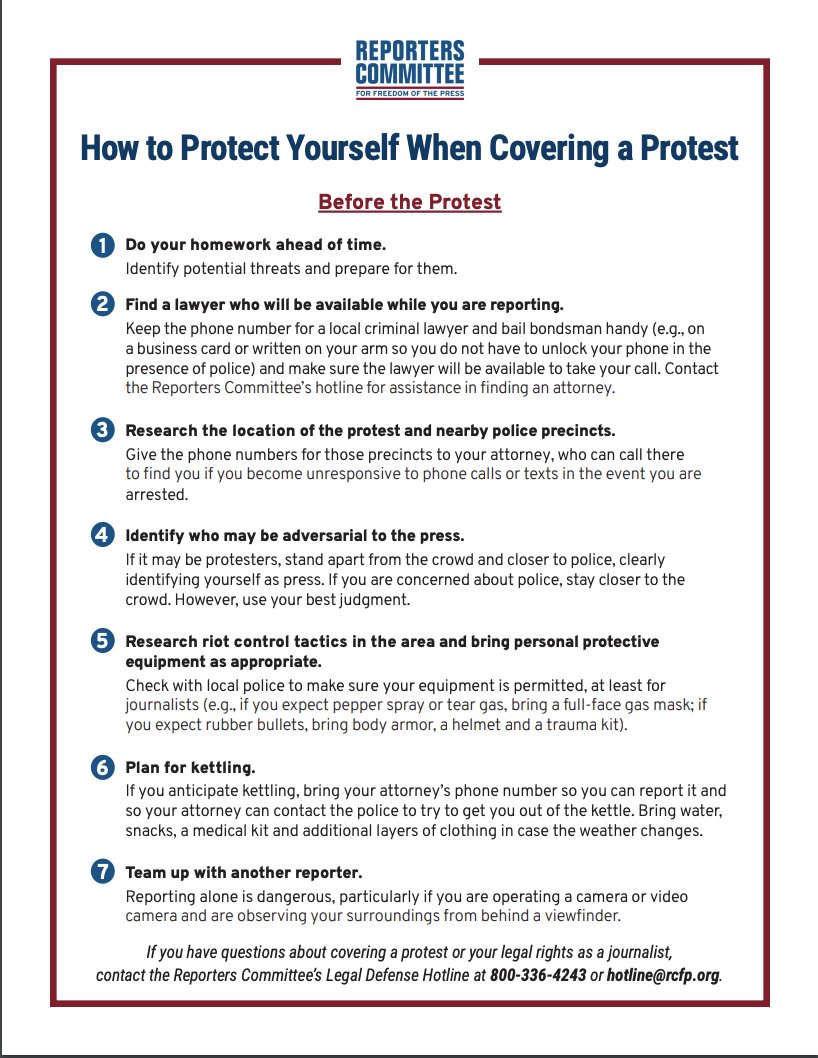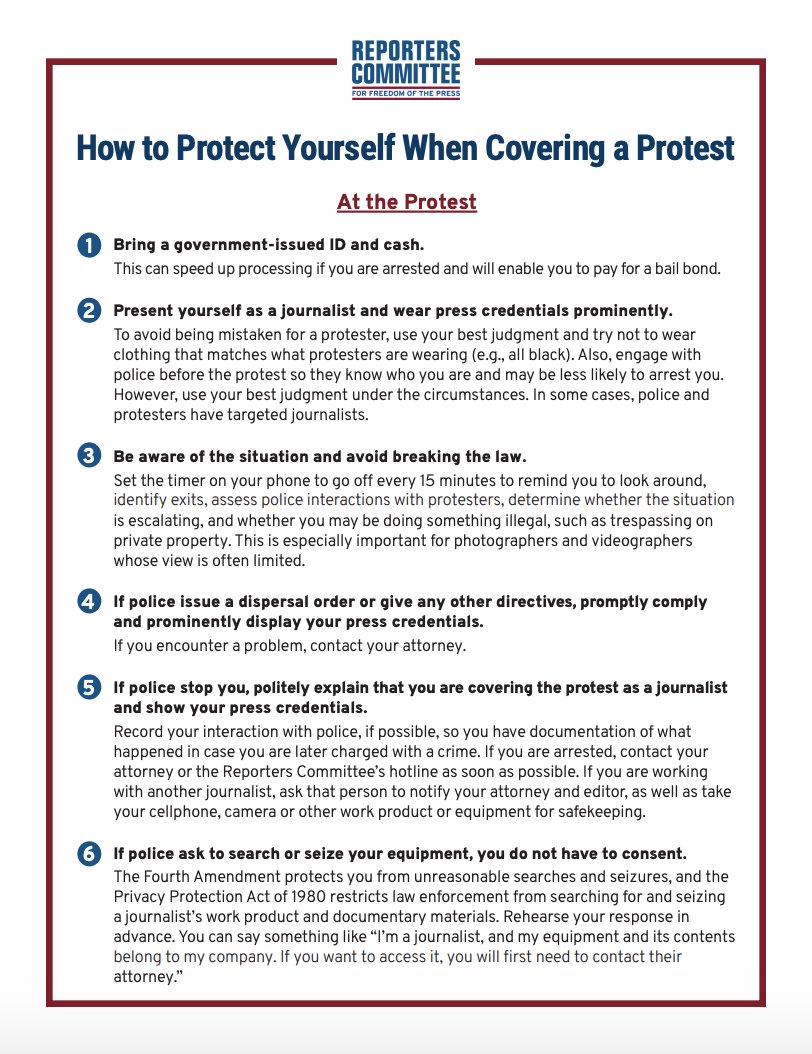News coverage of protests like the one in Minneapolis is essential to informing the public & understanding the concerns of our communities.
But, protests remain one of the the most dangerous places in the U.S. for a journalist (via @uspresstracker).
Thread of @rcfp resources:
But, protests remain one of the the most dangerous places in the U.S. for a journalist (via @uspresstracker).
Thread of @rcfp resources:
. @rcfp has a tip sheet that describes ways journalists can protect themselves while covering protests.
Save, screenshot, share: https://bit.ly/2Y1afK2 ">https://bit.ly/2Y1afK2&q...
Save, screenshot, share: https://bit.ly/2Y1afK2 ">https://bit.ly/2Y1afK2&q...
. @rcfp& #39;s guide on Police, Protesters and the Press covers journalists& #39; rights to:
- gather news generally
- record (video or audio footage, photographs, etc.)
- to protect equipment and materials from unnecessary search and seizure
and more: https://bit.ly/3cdEy3F ">https://bit.ly/3cdEy3F&q...
- gather news generally
- record (video or audio footage, photographs, etc.)
- to protect equipment and materials from unnecessary search and seizure
and more: https://bit.ly/3cdEy3F ">https://bit.ly/3cdEy3F&q...
. @rcfp also keeps a map of the current status of state legislation and police department policies regarding public access to police body-worn cameras (bodycams or BWCs) around the U.S. under public records laws. https://www.rcfp.org/resources/bodycams/">https://www.rcfp.org/resources...
ANY journalist with additional questions or in need of assistance finding a lawyer should contact the Reporters Committee’s free hotline: http://rcfp.org/hotline ">https://rcfp.org/hotline&q...

 Read on Twitter
Read on Twitter



